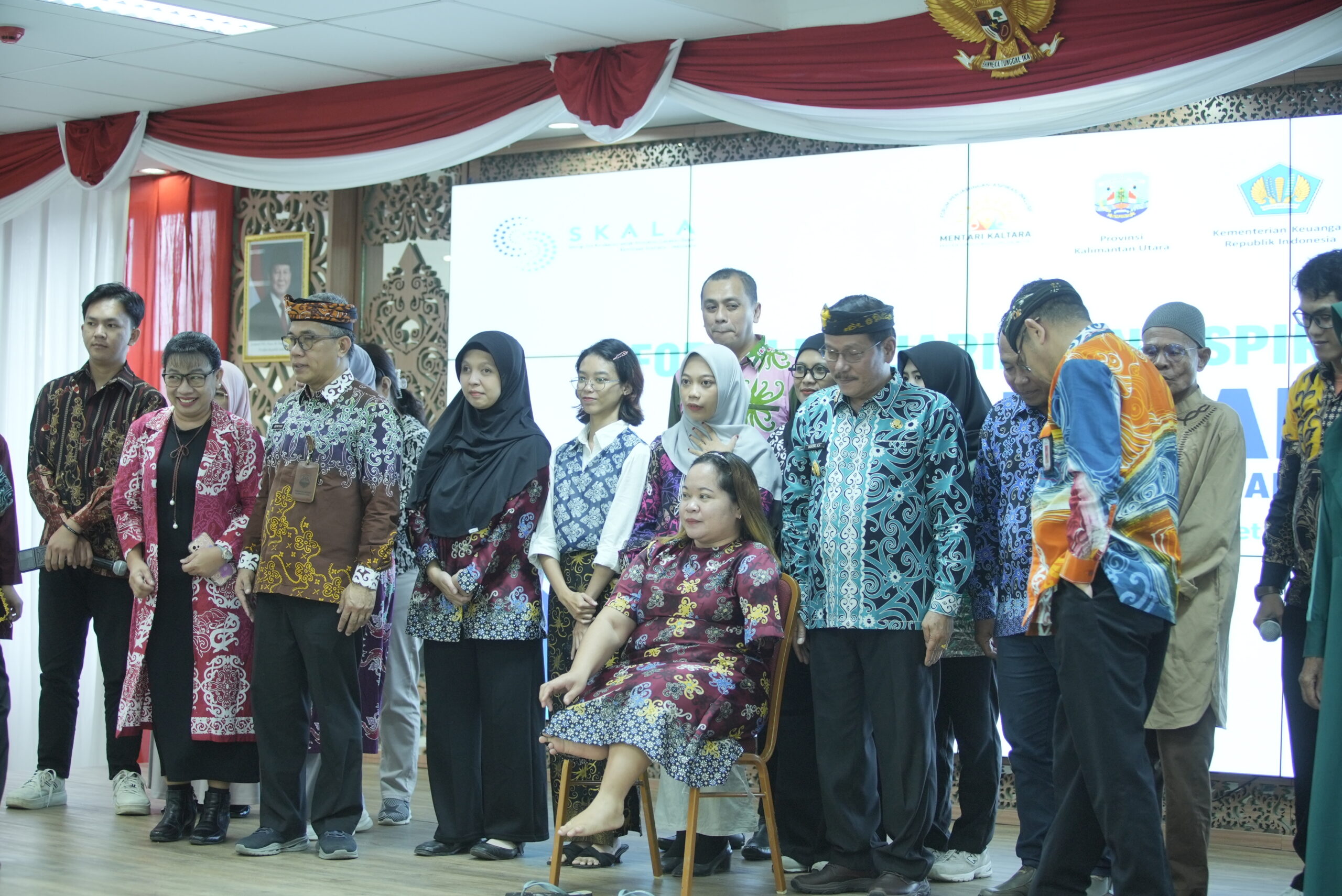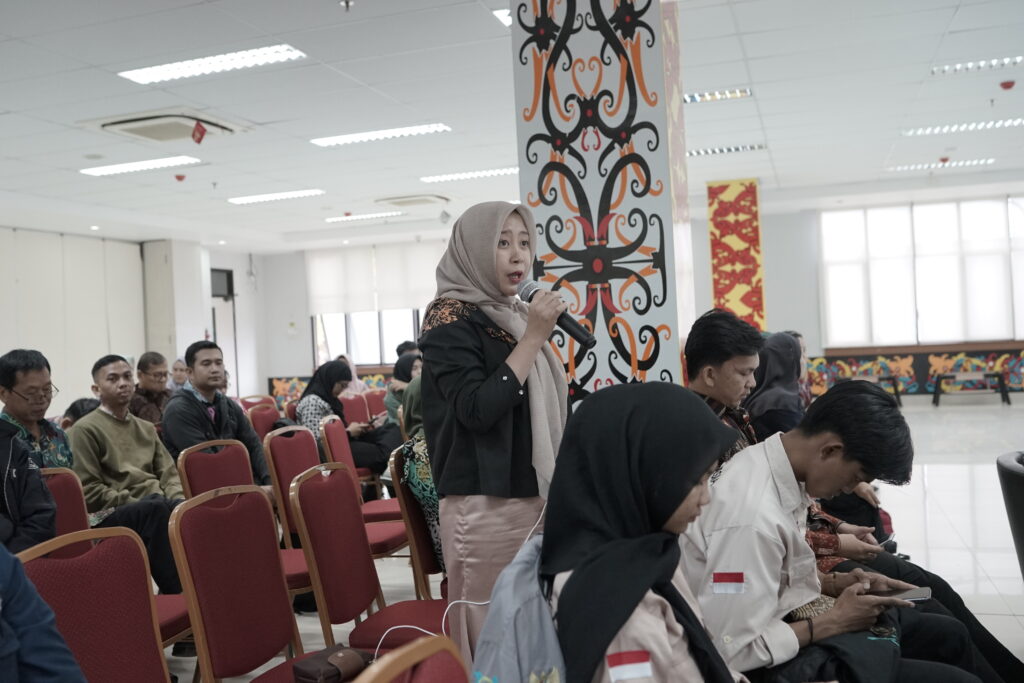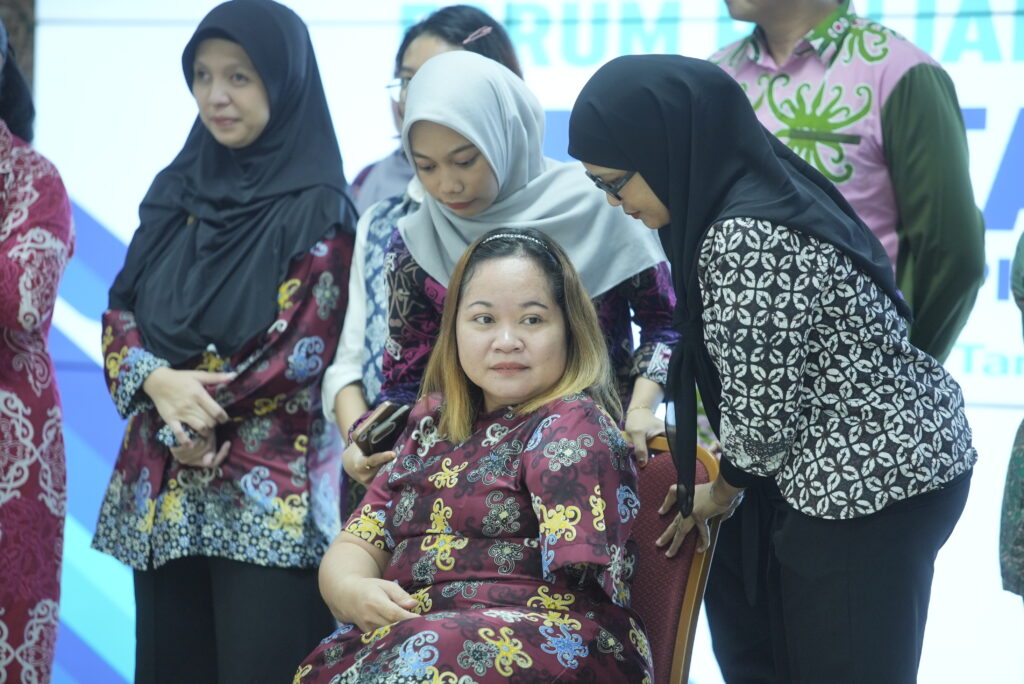Ensuring Equal and Inclusive Development in North Kalimantan: The Mentari Kaltara Forum

As part of its commitment to inclusive and equitable development, the Government of North Kalimantan (Kaltara) hosted the Mentari Kaltara Inclusive Dialogue Forum on March 20, 2025, in Tanjung Selor. The forum served as a participatory platform to gather input from the community on how to promote equality and inclusion across the province, often referred to as Bumi Benuanta.
The Vice Governor of North Kalimantan, Ingkong Ala, S.E., M.Si., officially opened the forum, reaffirming the provincial government’s commitment to inclusion and social equity.
“The Mentari Kaltara Inclusive Dialogue Forum is a reflection of the provincial government’s support for children, women, persons with disabilities, the elderly, and other vulnerable and marginalized groups,” he said.
A Collaborative Effort for Inclusive Planning
The Vice Governor emphasised that development is not only about achieving economic growth, but also about meeting the needs and aspirations of all segments of society. Collective effort is key to ensuring that development truly benefits the people of North Kalimantan.
One example of this collaboration is Mentari Kaltara, initiated by the North Kalimantan Provincial Government with support from the SKALA Program. The Forum aims to deliver four outcomes:
- Establish a platform for community participation in regional development planning;
- Strengthen awareness and understanding among stakeholders on inclusion issues;
- Collect relevant and actionable input on challenges faced by vulnerable groups; and
- Use this input to inform the preparation of key planning documents such as the 2025–2045 Regional Long-Term Development Plan (RPJPD), the 2025–2029 Regional Medium-Term Development Plan (RPJMD), and the 2026 Regional Government Work Plan (RKPD).
The Vice Governor also outlined four directives to regional government agencies to strengthen inclusive development: (i) Improve coordination and collaboration with civil society networks; (ii) Integrate community input into planning processes; (iii) Ensure continuous spaces for inclusive participation; and (iv) Build institutional capacity and awareness on inclusion issues.
This Forum is part of SKALA’s broader support to strengthen subnational governance systems so they are more inclusive, data-driven, and responsive to community needs. In provinces like Kaltara, SKALA works with local governments to embed Gender Equality, Disability and Social Inclusion (GEDSI) principles in planning and budgeting processes, and to institutionalize mechanisms that allow for meaningful community participation—particularly from those most often excluded. By supporting forums like Mentari Kaltara, SKALA partners with government to build pathways for bottom-up input that can shape more equitable policies and better service delivery.
Policy Dialogue and the Importance of Inclusive Planning
As part of the Forum, the Mentari Kaltara Technical Guidelines were symbolically handed over, and civil society networks (JMS) shared community input. This marked an important step toward institutionalizing inclusive development practices in North Kalimantan and highlighted the importance of embedding community participation, especially from vulnerable groups, into formal government planning systems.
The Forum is also a space for learning and alignment. Presentations from national and regional policymakers highlighted the strategic importance of within Indonesia’s 2025–2029 National Medium-Term Development Plan (RPJMN) and regional development strategies. This type of policy dialogue bridges national direction together with subnational implementation, so that inclusive development is not only a commitment on paper but also a shared agenda across levels of government.
The active participation of six civil society groups—representing people with disabilities, older persons, women, children, indigenous communities, and other marginalized groups—demonstrated the critical role of community voices in shaping development priorities. By presenting their lived experiences and concrete proposals, these groups contributed valuable perspectives that can help the regional government better identify service gaps and policy blind spots. And by reviewing and validating community inputs, government agencies reinforced the importance of two-way accountability between citizens and the state, helping to build trust and lay the foundation for more targeted and inclusive policies.
From Dialogue to Action
The Forum concluded with a joint statement by government and civil society representatives to follow through on community inputs. A key outcome was an agreement to integrate the community’s proposals into the 2026 Regional Government Work Plan (RKPD). This will ensure the Forum’s results inform real policy action.
The Mentari Kaltara Forum is not a one-off event but a critical part of an ongoing effort to institutionalize inclusive planning at the subnational level. By aligning participatory processes with formal planning cycles, the forum helps ensure that the voices of women, children, persons with disabilities, older persons, and other marginalized groups are systematically included in development decisions—not only as beneficiaries but as active contributors.
The Mentari Kaltara Forum reflects an important shift toward people-centered planning in North Kalimantan. By prioritising the voices of those who are often left out of decision-making, the province is laying the groundwork for more inclusive and impactful development.








